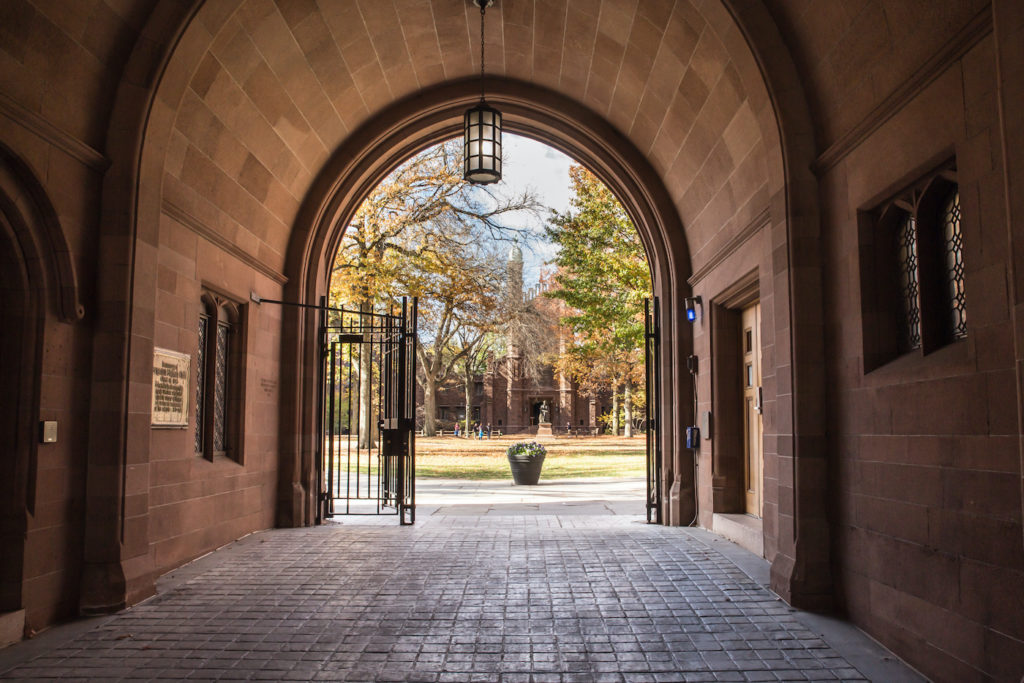Like many professors, I have been forced by COVID-19 to teach the last few weeks of all my courses online. As it became clear that the Coronavirus called for nationwide efforts at mitigation, my university declared an early and longer spring break to permit faculty to prepare to move to online instruction in classes that they had been offering on campus. The switch was not too wrenching for me, since I had taught online before and was currently teaching one of my courses online already. Nevertheless, it certainly felt like a new experience. When I think of “teaching,” I think mainly of going to work and meeting with students in a classroom. “Teaching” has not meant that for the last few weeks.
The experience poses a question: which is better, online or in-person teaching? The question is made more pressing by the fact that some will use the present crisis as an occasion to urge us to move more decisively and permanently in the direction of online higher education—not because the virus will never go away, but because online instruction is somehow more efficient, more modern, or more innovative.
There are, of course, certain advantages to online instruction. It eliminates the need for classrooms in buildings that are expensive to maintain. It saves time for teachers and students who no longer have to travel to the place where the class meets. You can’t transmit a virus through online instruction (at least not the kind that infects humans instead of computers), and so online instruction cannot pose a risk to anybody’s health (unless you count the metaphorical possibility of boring someone to death). These advantages, however, are obviously extrinsic. They do not relate to the quality of the educational experience itself. We are forced to ask, then, whether higher education would be better as education, and not just whether it would be more convenient or safer, if it were conducted exclusively online.
I would argue against such a change. I hasten to add that I do not intend a blanket criticism of online college classes. They have a place and often serve a real need. Some students have family or work obligations that prevent them from attending classes on campus. For them, online courses are justified by necessity, by being the only practical way they can learn the subject matter they want to study. And, as we have learned this spring, online teaching is better than wholesale cancellation of classes when a widespread illness makes it unsafe for teachers and students to assemble in the traditional classroom. But using online instruction where necessity requires it does not justify us in replacing in-person teaching with online teaching where no necessity compels such a move.
Start your day with Public Discourse
Sign up and get our daily essays sent straight to your inbox.In-person education is the traditional method that has proved its efficacy for a long period of time. Our civilization is the source of many blessings, and it has been developed and transmitted through the encounter that happens when teacher and student meet together in person. If some part of our way of life has proven itself presumptively beneficial, why jettison it permanently in response to a temporary crisis?
Of course an appeal to traditional ways is surely not sufficient here. Not only is tradition poorly valued by contemporary societies, it is not the primary consideration for higher education. Higher education is—or should be—a training of the mind to seek what is true and good, not merely to receive what is traditional. We must seek, then, not the established way of higher education but the best way. Answering that question requires exploring the question of human nature. We learn from Thomas Aquinas that man is by nature a sociable and political animal—an observation that can be traced all the way back to Aristotle and is confirmed by common sense today.
When we remember this truth about human nature, we see that there is something bad about the isolation of human beings from each other, even if an emergency makes such isolation temporarily necessary to protect human life. Human beings are made to interact with each other—to debate, think, and inquire together—outside of their immediate families. Accordingly, there is something questionable about online education’s isolation of teacher from students, students from teacher, and students from each other. Here one might respond in defense of online education that it is, in fact, compatible with our sociable nature. It is, after all, an exaggeration to say that the participants in online education are simply isolated from each other. Rather, they exercise their natural sociability by interacting through modern technology. This is why we call it internet mediated instruction.
There is some truth in these claims, but they do not quite meet the issue. Again, as Aquinas and Aristotle (and common experience) teach us, human beings are sociable and political animals. As animals they are embodied beings. This means that their sociability is most completely or perfectly in play—that this aspect of their nature is most fully realized—when they are in each other’s physical presence.
This general argument based on human nature is confirmed by thinking through some of the specific advantages that result when students and teachers are physically present to each other in the traditional classroom. For example, we should not overlook the role of perplexity in education, the feeling we get when we sense that something is intelligible but we have not yet been able fully to understand it. Obviously higher education tends to provoke considerable perplexity in students, who are mostly young and who have just begun to inquire into complex intellectual problems. The point at which they experience perplexity is a crucial one; it is the point at which the teacher needs to try to explain again, but perhaps somewhat differently. It is far easier to detect and respond to another’s perplexity in person. Often a teacher can tell by the students’ facial expressions that they are confused, and that moment of confusion may be the crucial point at which clarity can be achieved and education advanced.
For that matter, it is valuable for the students to experience the teacher’s occasional perplexity, as when a question arises that the teacher had not before considered. A wise colleague once advised me not to conceal my perplexity from the students. It shows them that the subject matter is vast, difficult to master completely even after decades of study, and therefore demanding of the student’s utmost sustained exertion to understand it. But students are much more likely to have this valuable experience of seeing a teacher temporarily at a loss when they meet together in person to discuss complicated questions.
Teaching, however, is not just a matter of the mind but also of the heart. It is a sentimental cliché—but none the less true for all that—that good teachers care about their students. Everyone understands, for example, that a good teacher’s care will show itself in a sympathetic response to whatever hardships a student may confide that are impeding his or her education. More central to the educational mission, however, is the teacher’s caring about the students’ actual learning. Teachers have a certain intrinsic superiority over their students; they understand things that the students are struggling to learn. The teacher’s job is thus to help people who are in a position of relative weakness, and that undertaking depends to a considerable extent on the teacher’s care for the students’ learning. This in turn depends on the teacher’s sympathy for the students as human beings. Surely this solicitude, so essential to education, is easier to experience for people with whom one meets in person on a regular basis. A conscientious teacher conducting an online class will derive satisfaction from seeing the progress the students are making. But how much more satisfaction is experienced by the teacher who has an opportunity to see the progress and to see, be with, and know the people who are making the progress.
This solicitude that flourishes most fully when we are bodily present to each other is also an important motivation for the students. Students learn more readily when they care about their teacher. The best teachers want students to be animated by a love of learning, which is not a pure, bloodless mental activity. Students are moved to learn to some extent by their sympathetic experience of the teacher’s joy in knowledge. Seeing that the teacher loves the subject matter, they are moved to love it, too (although rarely as much as the teacher would wish). Some students may be moved to learn through a sympathetic desire not to disappoint the teacher. And some are energized by an ambitious desire to impress the teacher.
These various forms of care are also an important motivator among the students. A successful student may make time to meet with a struggling student to discuss the material outside of class because the former has seen and sympathized with the latter’s difficulties. Again, ambitious students may exert themselves to perform well in class in order to impress other students. These are, to be sure, not the highest motives to education, but they are very human motives, and their force is increased when the participants in the educational venture meet together in person.
One might object that these considerations introduce an element of emotion that should rather be excluded from the training of our highest intellectual faculties. But such emotions will inevitably play a part in even the intellectual education of embodied sociable beings such as ourselves. From the beginning, the greatest teachers have understood this. In Plato’s Gorgias, Socrates claims that the best philosophic interlocutor is someone who possesses not only knowledge and candor but also good will—one who cares about those he is seeking to instruct. And Socrates, we recall, conducted his education exclusively in person. Technology may permit us to supplement, but it should not lead us to discard, the personal Socratic education that does full justice to human nature and has contributed so much to the development of our civilization.















